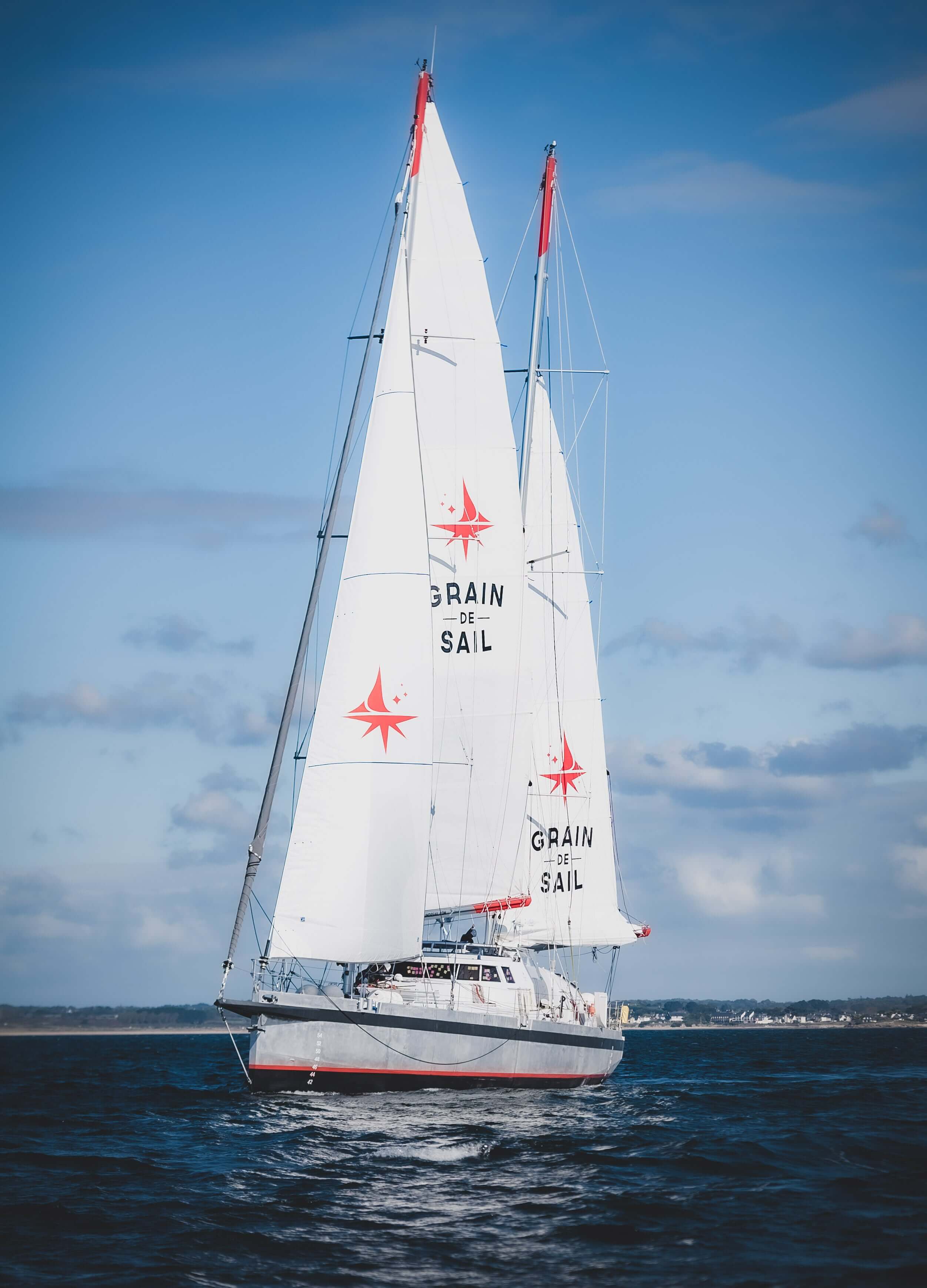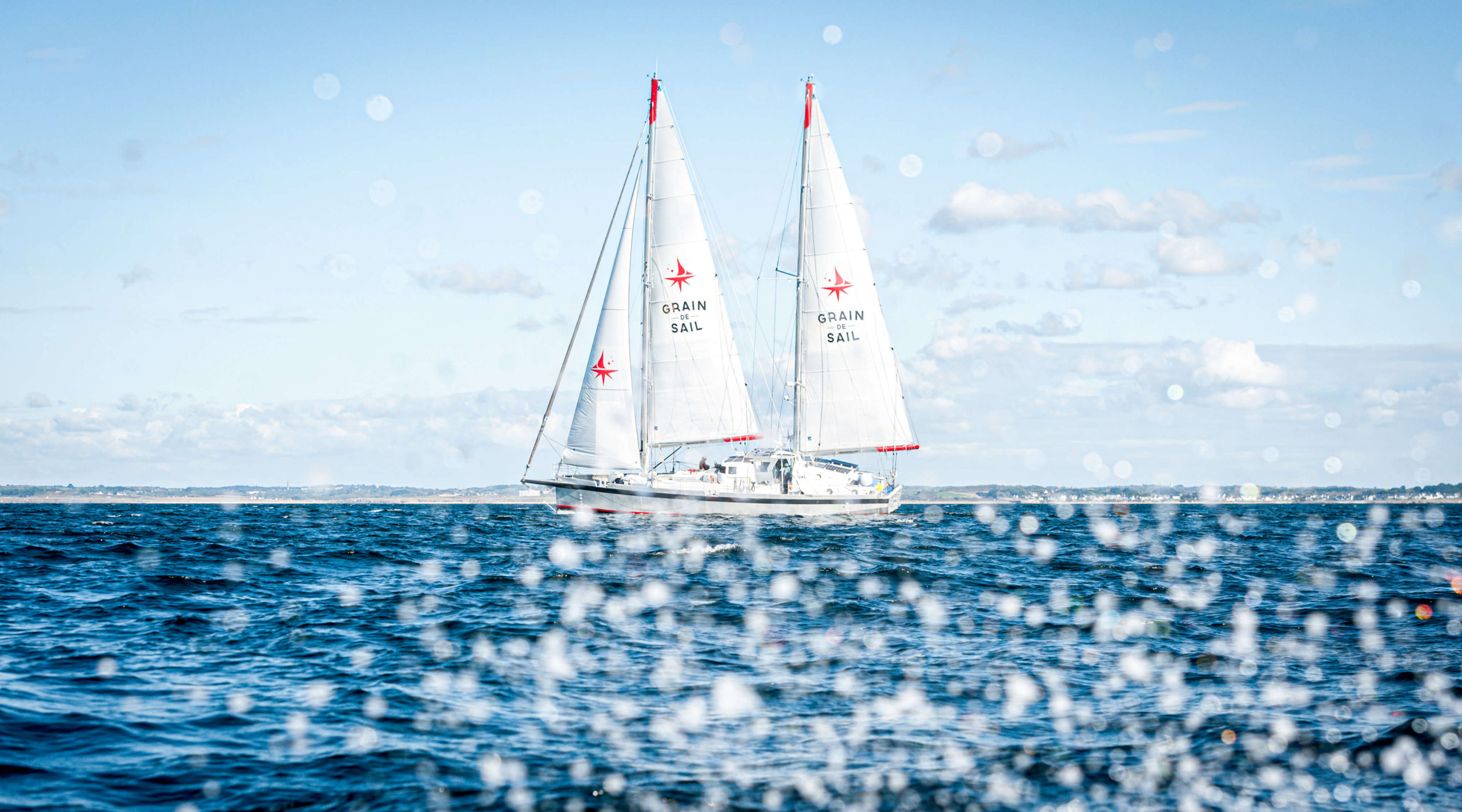Don’t be surprised to see a sailboat docked near the Brooklyn Bridge this May while NYC Ferries travel in either direction. What makes French company Grain de Sail’s 50-ton, modern cargo sailboat special is that it is powered by the wind – marking the emergence of a green logistics chain that relies on renewable resources instead of fossil fuels.
The sailboat and its four crew members left France on April 16 and are expected to arrive in New York City around May 14.
“Personally, as a windsurfer and paraglider or professionally as a wind farm builder, I have always been amazed by the awesome power of even a delicate breeze,” said Grain de Sail’s co-founder Olivier Barreau. “For our cargo sailboat we are retro-innovating by using ancestral wind navigation combined with modern technologies.”
“Grain de Sail is not just powered by the wind – it is empowered by it,” he continued to say, noting the company’s mission to use wind turbines, photovoltaic panels, and hydro generators to meet the vessel’s onboard energy needs.
The ship’s hull is designed for 26 pallets of cargo, which are secured in a hold featuring temperature and hygrometry stabilization – the world’s first purpose-built floating wine cellar under sail.
Crossing the Atlantic to the Big Apple
The sailing vessel, carrying 8,000 bottles of organic, biodynamic French wine and 500 bars of chocolate, will make a special 10-day stop at the One15 Marina in Brooklyn Bridge Park.
Members of the public are welcome to apply to visit the vessel and learn more about its advanced green transit features while it is in port. A tasting of some of the Grain de Sail’s chocolate and signature wines – which have never been tasted before in America – may unfold on deck after touring the sailboat and learning more about the project adventure.
“We want to showcase different regions and grape varieties and we intentionally pick bottles that reflect this approach, from famous Burgundy or Champagne to lesser-known Muscadet or Jurançon,” Grain de Sail said. “Each region is unique and brings something different, and that’s what we want to share with New Yorkers.”
Additionally, all Grain de Sail wines are put through a “taste-resiliency test,” which involves placing bottles in cargo sailboats for at least three weeks at sea and tasting them at various intervals after they return (generally upon returning to the harbor, then one week later, and then another two weeks thereafter).
To book a slot to visit the vessel (with a group of 10 people max), contact Grain de Sail for a registration link.
A Brief History
Grain de Sail’s story began in 2010 when Barreau and his twin brother Jacques challenged themselves to transport gastronomic products to cross-Atlantic consumers efficiently by sail. To achieve this, Barreau first chose to create a business that would directly benefit from the investment.
Barreau set up a coffee-roasting company and facility in 2013, opened a chocolate factory three years later, and started building a sailboat in 2018.
Each of these ventures, according to the company, is successful and consistent with the underlying mission – coffee and cocoa are raw organic crops that come from overseas and have high added value once processed.
Where to Next?
After its brief stay in Brooklyn, the sailboat will proceed south to the Caribbean. Once in the Caribbean, it will pick up organic coffee and cocoa beans and then sail back home to Brittany where chocolate and coffee are produced at the company’s factory.
“This will create a virtuous circle between the Old Continent and the New,” Grain de Sail said of the three destinations slated for this trip.
Round trips take more than three months to complete and occur twice a year.
Grain de Sail is currently contemplating a second cargo sailboat, which will be operational in 2023. But the brothers’ ultimate goal is to build a full fleet of vessels to pursue the search of high-quality products within its maritime, human, and environmental adventure.












One Comment
This is such a brilliant plan and thanks for reporting this in the Star-Revue. The NYT had a small article on the subject but Ms. DeGregorio’s story offers more information and is more interesting. As a frequent traveler to Europe I’ve enjoyed their extraordinary wines and at affordable prices. Those same wines never make it to the U.S.; and if they do, they’re usually too expensive. Those countries like to keep “the good stuff” for themselves! If this idea takes off, maybe we’ll have greater access to the beautiful wines of France (hopefully Germany, Austria and Italy will follow suit). But best of all is the idea itself. What a creative environmentally conscious business idea. Let’s hope it works!